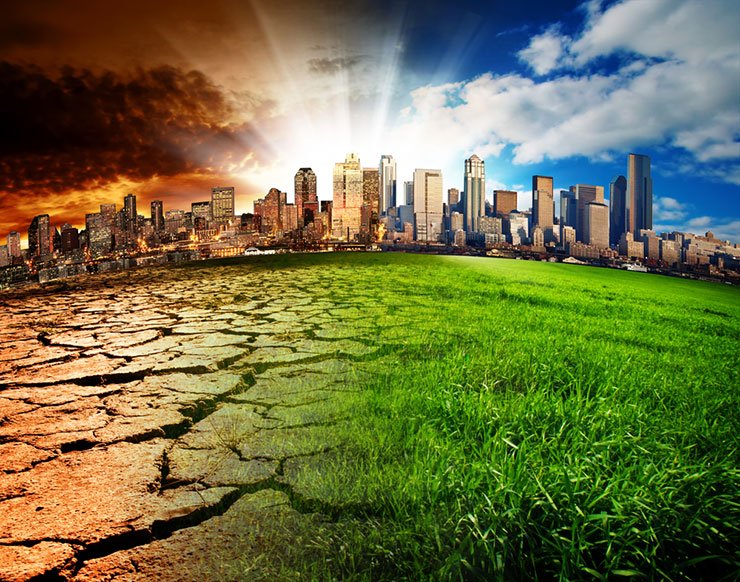Credit: kwest/Shutterstock.com
Climate change is probably the single most important topic around the globe today. It is being widely talked and discussed about by the international community at this moment. This phenomenon threatens to wipe out all forms of biodiversity from planet Earth. So what actually is Climate Change and how does it work?
What is Climate Change?
In common terms, Climate Change is defined as an ongoing phenomenon in global or regional climatic patterns, mostly noticeable since the mid to late 20th century and attributed largely to the increased levels of atmospheric carbon dioxide produced by the use of fossil fuels by human beings.
How does Climate Change work?
The incoming solar radiation heats the surface of the Earth by penetrating through its gaseous blanket, that is, the atmosphere. The Earth in an attempt to cool itself gives off Infrared Radiation (IR) most of which escapes to the outer space. However, atmospheric gases like Carbon Dioxide (CO2) etc. traps some of the reemitted heat which warms up the lower atmosphere and thereby helps to support life forms on Earth’s surface. This is the Greenhouse Effect. Until here everything is normal.
Ever since the Industrial Revolution began, people started using fossil fuels. Industrial and vehicular emissions has put more of CO2 and other gases in the atmosphere. This means more heat is being absorbed by these gases which has eventually raised the atmospheric temperature even more causing an Enhanced Greenhouse Effect.
The rise in global average temperature has led to melting of continental glaciers and polar ice caps. Due to unscrupulous felling of trees, the amount of CO2 has increased in the atmosphere. While some places are experiencing rainless seasons with severe drought, some others are being hit by untimely floods and extreme cyclonic storms. The duration of the summer and the winter season has changed drastically.
Although the world’s climatic pattern has always been dynamic over time, recent decades have experienced rapid fluctuations. It is probably the first time in history that the impact of a single species is posing as a serious threat to the existence of life on Earth. Multiple efforts have been initiated by the international community to lower the emission of greenhouse gases. For instance, industrialized countries agreed to abide by the near-term emission reduction targets under the Kyoto Protocol in 1997. Today the entire planet’s biodiversity faces a risk that questions their survival.
Although irreversible, but climate change could have been slowed down if humans act responsibly. With many species facing habitat loss due to pollution and over exploitation, nature is now required to adapt to new climatic environments. It’s an uphill task to say the least.
Comments and Suggestions are welcome.
Until next time, goodbye.If you liked it, do follow @usualsuspect